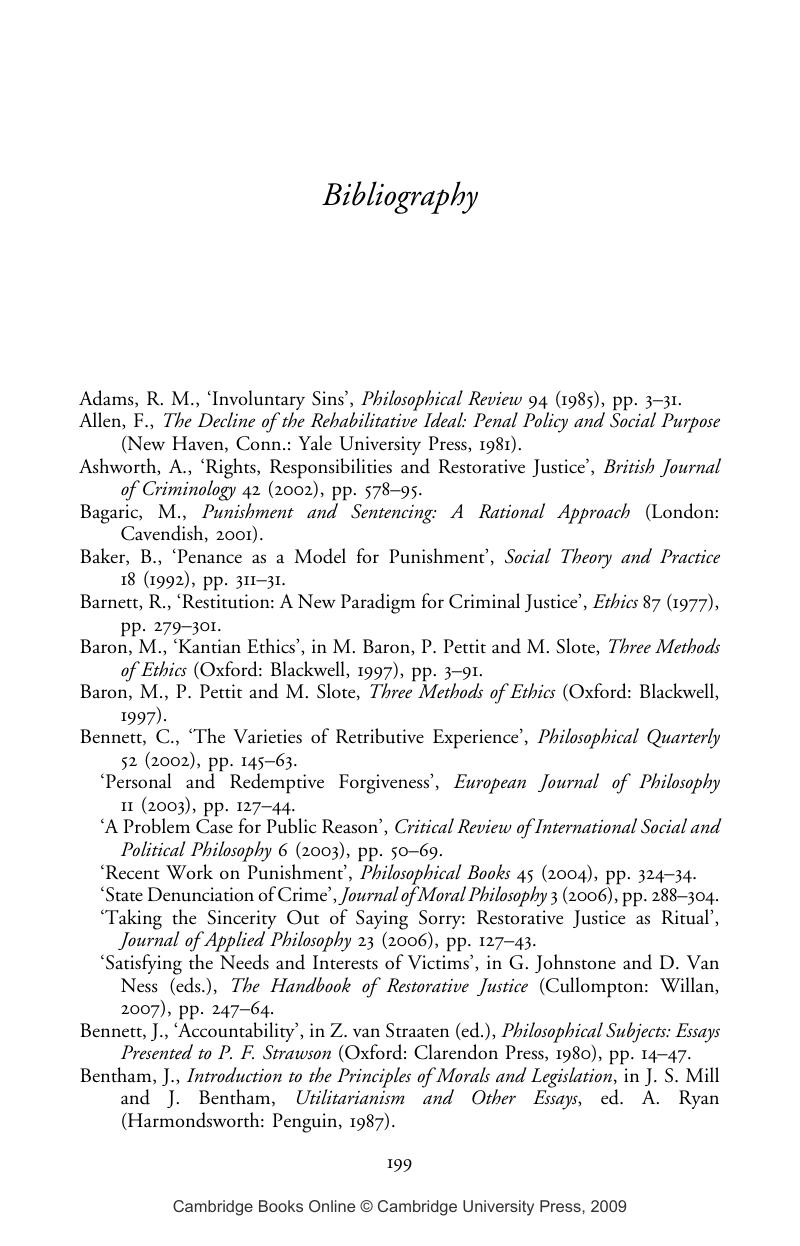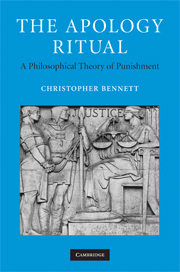Bibliography
Published online by Cambridge University Press: 22 September 2009
Summary

- Type
- Chapter
- Information
- The Apology RitualA Philosophical Theory of Punishment, pp. 199 - 207Publisher: Cambridge University PressPrint publication year: 2008



